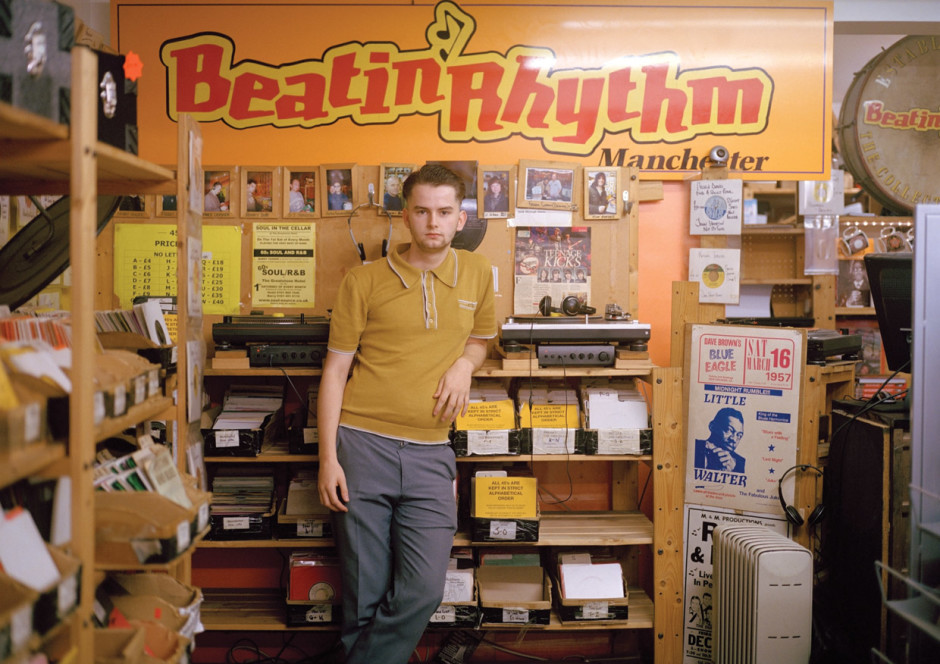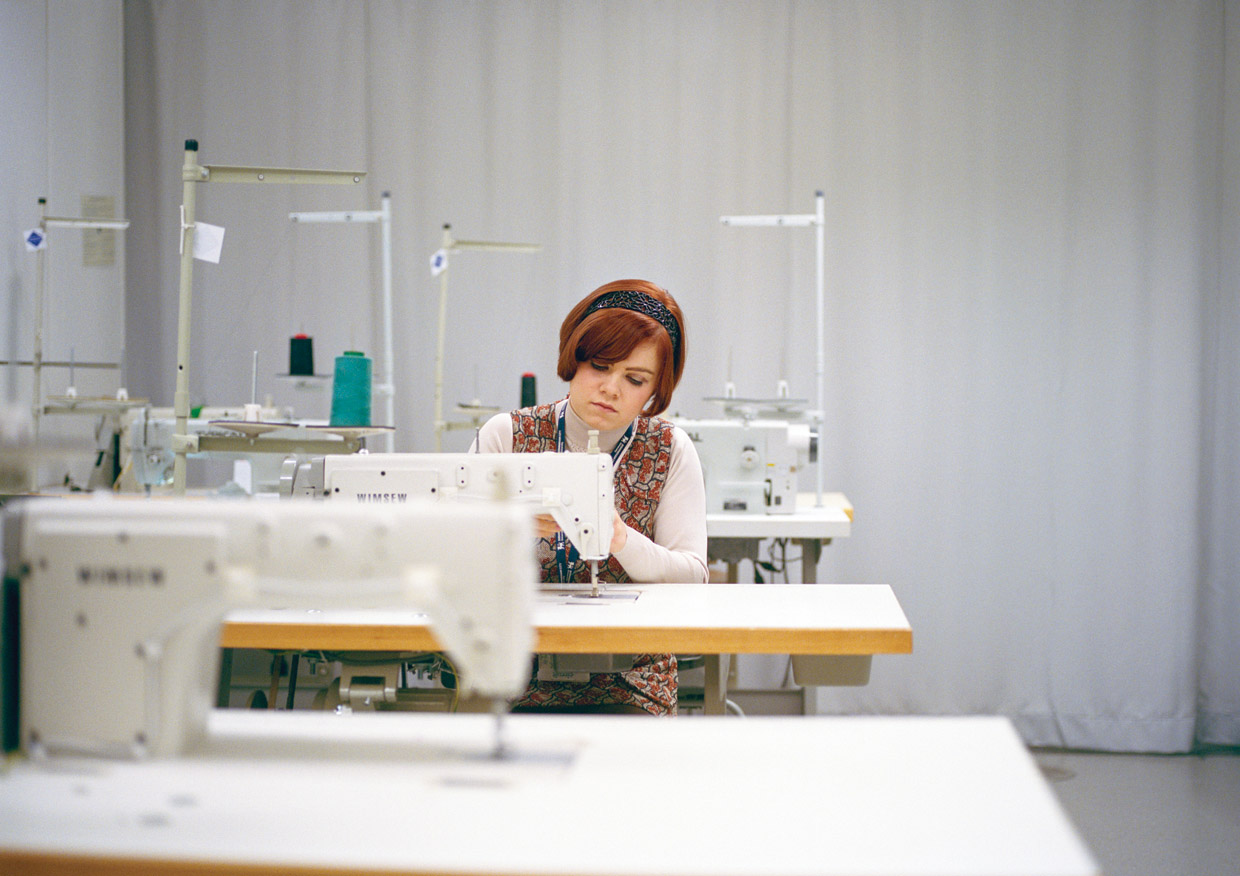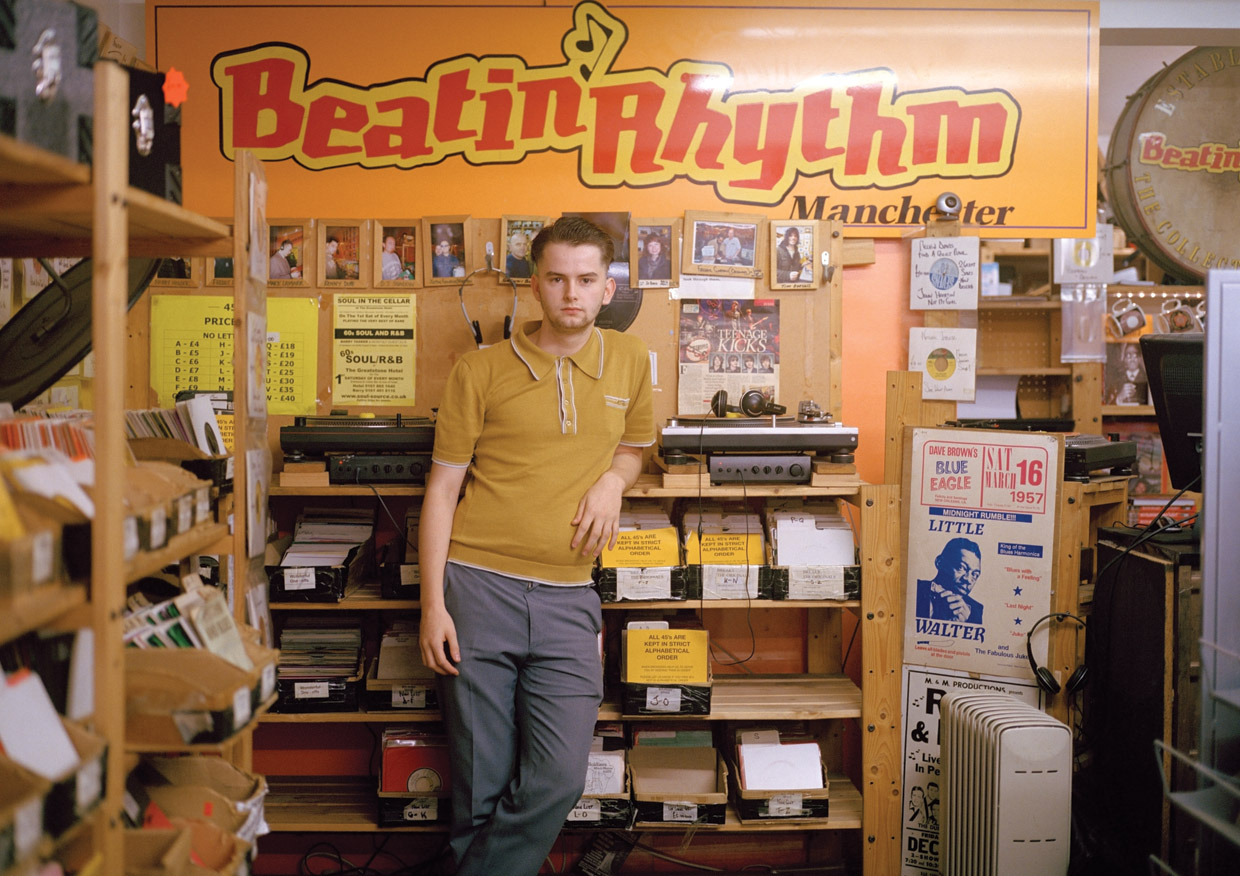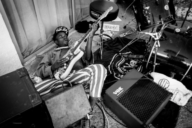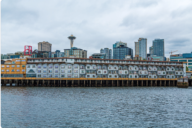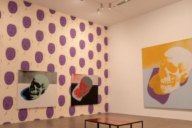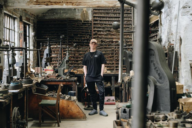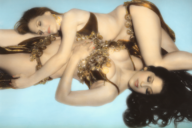ALL BECAUSE OF YOU: PORTRAITS OF THE NORTHERN SOUL SCENE
Researcher Sarah Raine and photographer Bethany Kane came together after discovering their shared interest of the Northern Soul scene.
While Bethany has been photographing fans of sub-culture scenes like Punk, Skinhead Oi! and Reggae for the past six years Sarah has been conducting research for the Birmingham Centre for Media and Cultural Research.
The work brings together a collection of photographs, audio, memorabilia and insider accounts exploring the underground Northern Soul music scene and its younger participants within Birmingham and the Midlands.
Can you tell us a little bit about coming up with the idea for the project?
Sarah Raine– The project is one stage within this collaborative process. It offers us a means to share our work with the public, to consider our collaborative relationship through curation, and to reflect on the process taking feedback into consideration. The project itself came out of a meeting early on in my doctoral research. Having found Beth’s exhibition ‘Young Souls’ at Coventry Centre of Contemporary Arts, we arranged to meet. As we talked, I decided that rather than including Beth as a participant within my research, I wanted to collaborate with her as a talented young photographer, to consider my subject through visual means as well as ethnographic.
The theme of the exhibition is a shared interest. For Beth as both a young (female) member of several ageing music scenes and a young photographer, the experience of young people is important personally, and more generally in understanding the emergence and popularity of music scenes. These young people engage with a scene established in the 1970s in terms of practices, and the 1960s in terms of music- for me as a researcher, the scene offers an opportunity to explore the ways in which people establish themselves within an insider music scene, negotiating and adapting the rules to make it meaningful to new generations.
Bethany Kane– I have been photographing the music scenes that I am a member of (such as Punk, Skinhead Oi! and Reggae, and of course Northern Soul) for six years. Most of my work includes photographs of my friends and people within local scenes who took an interest in my work. More recently, I have worked closely with PYMCA (Photographic Youth Music Culture Archive) and this exhibition seemed the next natural step for my photographic practice.
Why do you think that there has been a key resurgence in the Northern Soul scene (or has it always been there)?
Sarah Raine– The published histories of the scene always emphasise certain key venues: the Twisted Wheel in Manchester; the Golden Torch in Tunstall; Wigan Casino; and the Blackpool Mecca. The closure of Wigan Casino in 1981 is mythologized as the end of the scene, yet it carried on in smaller yet equally dedicated clubs across the country. Northern Soul remained a passion for many throughout the subsequent decades, introducing the scene to their children and younger friends. However, it must be said that the scene has experienced a noticeable increase since the recent film Northern Soul, particularly amongst soul fans in their teens and early twenties. Whilst the film offers an initial introduction to the scene, social media also plays an important role, offering young newcomers especially access to knowledgeable young Northern Soulies, many of whom are happy to recommend events for first-timers and even to meet them in person at a night. Through this supportive community of young people, the northern soul scene is gaining an increasingly youthful following.
You are focusing on the younger fans of the scene – is there any particular reason for this?
Sarah Raine– Initially, my interest in the younger Northern Soulies was piqued when the distinct rules of the scene became apparent to me. Many of them concerning relationships and technology advocate retrospective and reserved behaviour, seemingly at odds with some aspects of contemporary youth culture. As my research progressed, I was increasingly interested in the complexity of individual engagement within the scene, and the ways that these engagements overlapped to create slightly different ways of behaving than what was commonly expected of a ‘Northern Soulie’.
In both academia and the media, northern soul is predominantly considered as a historic scene, with the emphasis placed upon 1970s venues such as Wigan Casino. For me, the continuation of the scene is more interesting than its emergence. What brings all these different people together? To passionately dedicate many aspects of their lives and most of their weekends to a specific canon of music and developing skills in dancing, DJing and record collecting? These questions become even more pertinent today.
What are your personal interests in the scene?
Bethany Kane– From a young age I have always had a passion for music, and a fascination for subculture, its communities and stylistic elements. I discovered my love for 60s ska, rocksteady and boss reggae (aged 15), and through attending skinhead reggae nights I was introduced to the northern soul scene. Found in a gritty underground venue in the heart of Manchester, my favourite soul night is Black Bee. Both its atmospheric elements along with the sound it prides itself upon ‘soul with a sting’; I have yet to find quite as good at any other event.
Sarah Raine– As the child of a mod-era father, I grew up with R&B, Motown and records that were eventually played on the northern soul scene. I was introduced to the scene five years ago, finally finding a scene where I could go and listen to records that I knew and to learn how to dance to some of my favourite songs. I love that northern soul events are first and foremost about the music. When I go out, I want a ‘serious’ dance floor, a cheap bar, excellent records and people that are passionate about music. The fact that I get to do this for a job is just amazing.
Birmingham and the Black Country isn’t usually closely associated with the scene – what did you find out from your research?
Sarah Raine– My northern soul re-education began almost immediately after starting my PhD. My supervisor, Professor Tim Wall, emphasised the importance of The Catacombs in Wolverhampton during the early days of the scene, in addition to the numerous youth clubs that existed in the Black Country (and across the country), which acted as an interlinked and important network of young fans, not quite old enough to attend clubs but desperate for news and records. The reality of the northern soul scene in the 1970s was much more complex than solely the well remembered clubs of Manchester, Stoke, Wigan and Blackpool. Birmingham and the Black Country is one of many areas with strong northern soul roots that have been understated in common histories of the scene.
In terms of the contemporary scene, Birmingham continues to lack a central venue for the Black Country soul community, but offers a range of smaller local events. Not too far beyond geographically, Rugby provides one of the biggest and most eagerly anticipated events of the scene calendar, acting as a key point for bringing together soul fans from the north and south of the UK.
Bethany Kane– Birmingham has a strong northern soul following and its own soul club, the Night Owl, dedicated to northern. I wanted to show the Birmingham’s importance within the contemporary scene.
How do you think the scene differs today from the original 70’s scene?
Sarah Raine– Answering this is complicated by the fact that the remembered past has become the history of northern soul, retold and rewritten as part of scene participation. As with many historic music scenes, the 1970s (in particular Wigan Casino) has been remembered as the musical and cultural peak of the scene. However, northern soul continues to attract a dedicated and passionate following of many generations, across the world.
At a simplistic level, the contemporary scene engages with digital technology in terms of communication, making full use of social media and websites for socializing, event publicity, and for sharing music, objects and ideas. Record marketplaces such as Discogs and recognition technology have also sped up the identification and movement of records. Equally, records from the central canon of the scene have inflated in price, excluding many of the younger DJs. As the northern soul scene is dedicated to the discovery of rare American records (predominantly) from the 1960s, rarities are sought in a range of genres and even into new decades. More generally, the younger generation are slowly adapting core scene skills and practices to benefit from the available technology, and to allow them to fully engage in key scene roles such as DJ and record collector.
Did you find out anything particularly surprising during your research?
Sarah Raine– I did not go in to my research expecting to find anything in particular, but rather hoping to give voice to an element of the scene that had yet to be represented in popular music scholarship. That being said, I think what surprised me the most was the differences between the scene in the UK and Spain. I am undertaking some research at Spanish northern soul events and noticed the absence of certain key elements that, for many British soul fans, defines a northern soul event. The reasons for this represent the next stage of my research.

